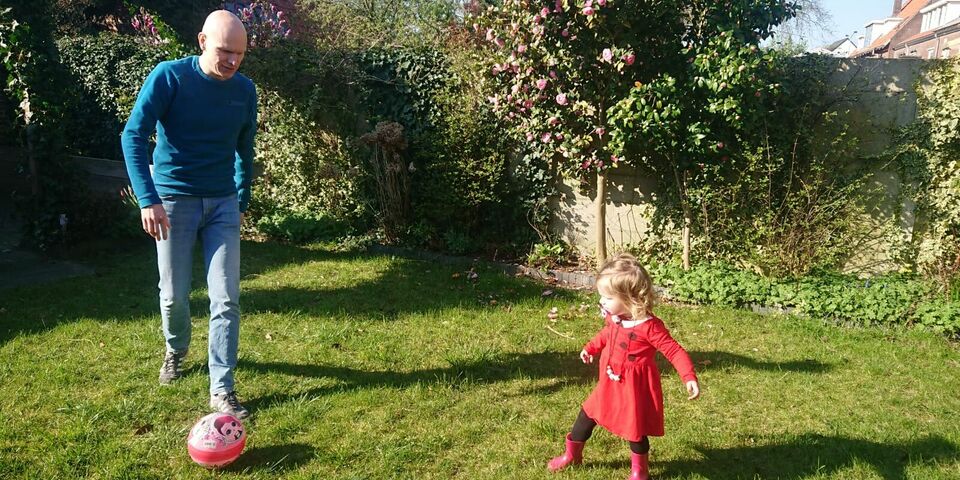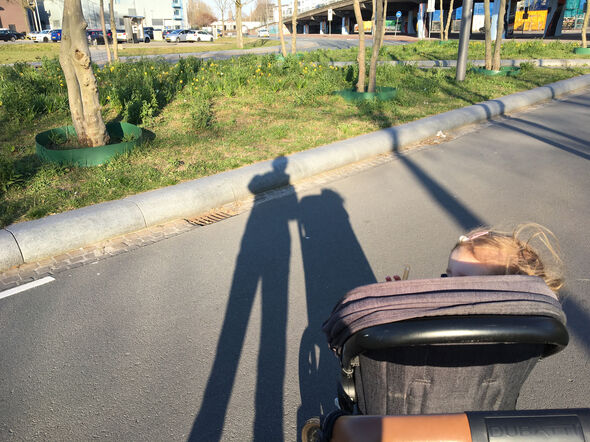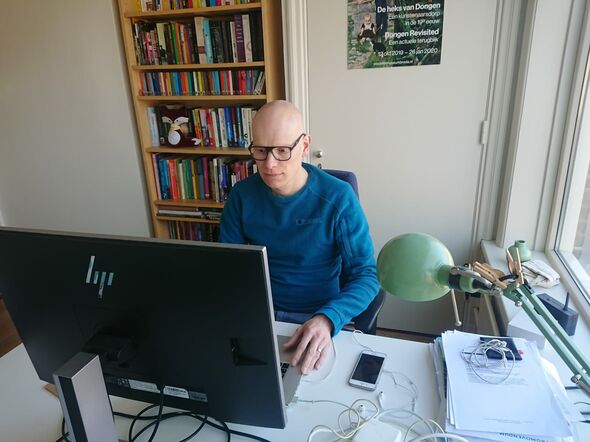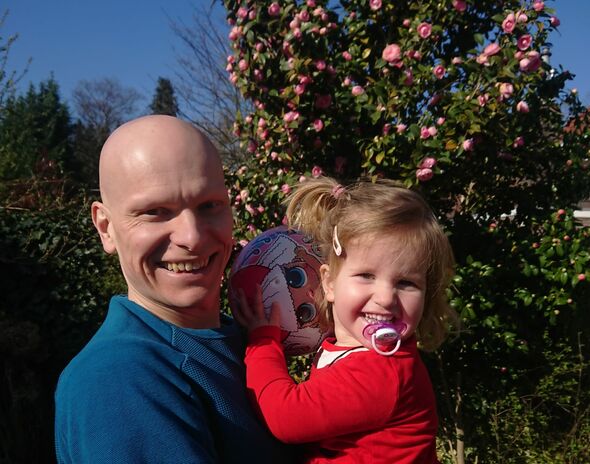“This yet again underlines the essence of our existence: our health”
We have probably all worked from home once at some point, voluntarily or out of necessity. But how do you divide your day and sort your work or study load now that we collectively depend on our home for a longer period of time? How do you stay focused, how do you keep your team together, what are the tips, tricks and pitfalls? Cursor calls a ‘fellow sufferer’ every day. Today: Maarten Hornikx, professor of Building Acoustics and vice-dean at the department of Built Environment.
Hornikx just steps out of his front door of his house in Eindhoven, with his two-year-old daughter Louise in the stroller, when we call him. Whether this is an inconvenient moment for a call? "No, it’s actually rather efficient."
Two weeks ago, the vice dean last closed the doors of the department building Vertigo on Friday afternoon, he says. "It was really quiet on the campus back then." Well, maybe as a manager he should have set a better example and should have started working from home earlier that week - but the ‘captain’ in him, who is considered to be one of the last to leave the ship, won.
Read on below the photo.
Hornikx is happy that, after a phase of successive updates and ever-changing guidelines, there is now clarity about everyone's provisional working-from-home status. “Before that you were constantly recalibrating: what can we still do, what should we prepare ourselves for? As vice-dean with research in my portfolio, I also have a role here, which includes determining who, in exceptional cases, are still allowed to enter the lab. Strict rules have been drawn up.”
In the process of acceptance
After two weeks at home, Hornikx and his family slowly start to find a rhythm. “I’m also in a process of acceptance; accepting that I just can’t work as much, for example. My girlfriend is self-employed; she was a bit more flexible in terms of work, but she also has less work now and takes care of Louise mostly. But I also want to contribute to that care. It just doesn't feel right to get away from my desk after eight hours and see if the food is ready.”
The acoustician, who has educational, research and administrative tasks on his plate, always has quite a full agenda, he says. “Now being at home, you actually have more work, while you just can’t work as much - if only because of a child who cannot go to daycare. Certain things therefore take a little longer now. And yes, that does cause me to feel some discontent; I’d rather just finish things.”
And so the credo goes: set priorities. "I have two promotions in the final phase, those always take priority." And: paying attention to his colleagues within the department. “We all work from home, in other workplaces, which are often far from ideal. Don't sit and stare at such a small screen for eight hours a day. And if you need an extra screen or mouse, do request it.” He sees how people within his department have worked “hard, long evenings, weekends” in recent weeks to organize everything online: “Really impressive. But there are also processes that will simply be delayed.”
Read on below the photo.
"Reaching limits”
"Please think," Hornikx urges people. “Don't push yourself to finish that paper as you might had planned. Of course it is nice if it works out, but if you subsequently risk physical complaints, you may have to rethink that. You can only do so much. I don't think we should expect everyone to be as productive as they normally are.”
Moreover, he continues: “We are very busy at work, but what is happening globally, is unique. Some people really feel mentally disturbed by the developments. But it also yet again underlines the essence of our existence - and that is our health. You also see people adjusting slowly. In the beginning we were fed up with a party that was canceled, or a canceled football match. Now that almost everything has been shut down, you see that disappointment giving way to resignation. People turn to what is most important.”
Running as an outlet
He looks back on last weekend, “the first weekend in a real social isolation. Before that there were always a lot of stimuli, parties and other things. It actually gave me some peace that that is not an option anymore.” Running turns out to be an even better outlet for Hornikx at the moment, even though he now goes alone instead of with his regular running group. "We now motivate each other virtually."
Read on below the photo.
How long this situation will last - Hornikx doesn’t dare to make a statement. “Scientists try to predict the course of the coronavirus, but are often wrong. Moreover: maybe we will get a sudden heat wave in April or May and then the expectations will suddenly change. We have to wait and hope that things go in the right direction.”
He talks about Chinese researchers within his group who have not been on campus since the first contamination in the Netherlands. “In hindsight, I believe that was actually good. I also spoke to a PhD student in China yesterday, who has been indoors for 58 days. "Don't go outside, that's dangerous." He will only come out again once there have been no new hospitalizations for a week in a row. If the Netherlands will also use that principle, this situation will last for quite a while.”
Quality over quantity
In any case, he hopes to give his inaugural speech in the fall, which was actually planned for May 15. “It is now postponed to September 18; a nice day in Eindhoven (Liberation day, ed.)” But for now: we need to set priorities, don’t forget to see the little bright lights and making sure we maintain a healthy balance in daily activities.
Quality is more important than quantity for Hornikx - not just now, but always. He points out the new university committee for Recognition and Valuation of which he is a member. It wants to, in consultation with the VSNU (Association of Universities in the Netherlands), move towards new assessment criteria for scientists. “The focus is still too much on publishing and raising money, while, for example, people may be very good at education or have a major impact in other ways. Then it doesn't matter whether you work eight or twelve hours a day.”
He concludes: “In the end it is all about living a long and healthy life. But at the moment we face harsh reality…”





Discussion